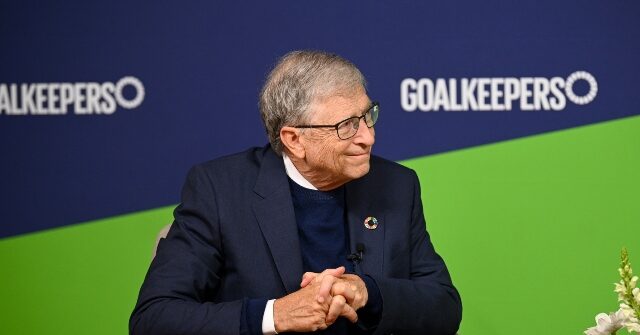In a recent podcast appearance, Bill Gates, co-founder of Microsoft, raised an intriguing point regarding humanity’s relationship with Artificial Intelligence (AI) and the potential need for a new guiding philosophy or religion to navigate its impending impact. Engaging in conversation with ultra-progressive billionaire Reid Hoffman, Gates articulated the belief that as AI advances and increasingly influences various facets of human life, society may find itself at a crossroads requiring a revised spiritual framework. This discourse emerges against the backdrop of widespread concerns surrounding the ethical, social, and existential dilemmas posed by the relentless march of technology.
Gates expressed optimism about the transformative potential of AI in addressing critical global issues, including disease, hunger, and climate change, acknowledging that these technologies could facilitate significant advancements in human welfare. However, he counterbalanced this optimism with caution, warning that the captivating nature of AI technology could lead individuals to prioritize virtual interactions over real-world connections. According to Gates, this trend could engender a sense of disconnection among people, thereby necessitating a unified philosophical approach or a “new religion” to foster genuine relationships and a sense of community amid the digital landscape.
In this context, Gates posited that such a framework could serve to anchor humanity in the face of addictive technologies that hold the potential to draw individuals into immersive virtual experiences, which he believes may overshadow traditional forms of engagement. This sentiment reflects a growing recognition among tech leaders about the possible psychological, social, and philosophical ramifications of pervasive technology. Gates’ proposition thus invites scrutiny of the broader implications of melding spirituality, philosophy, and technology, particularly as society witnesses a rapid shift into an AI-dominated future.
Moreover, Gates’ remarks shed light on the current societal climate, which is marked by a profound unease among influential figures regarding the consequences of AI’s omnipresence. His comments simultaneously highlight an underlying fear of political and social changes, particularly amidst speculative discussions about the potential outcomes of future elections in relation to prominent public figures. For instance, Gates has been mentioned alongside fellow billionaires who exhibit apprehension over the ramifications of potential political shifts, particularly regarding the implications of these shifts for their personal and corporate interests.
Elon Musk, another notable figure in this context, added a layer of complexity to the discourse by suggesting that Gates and Hoffman, among others, might be worried about the dissemination of damaging information, alluding to a notorious list of associates tied to Jeffrey Epstein. Musk implied that the political landscape, particularly a potential Trump victory, could lead to unflattering revelations regarding influential figures in technology and business, further complicating the narratives surrounding AI and society’s moral compass. This connection between political power and personal accountability raises questions about the motivations and ethical stances of those advocating for change within the framework of technology.
Finally, as the conversation surrounding Gates’ proposed need for a new religion or philosophy ignites debates about the integration of technology with human values, it underscores a broader societal inquiry into how humanity should respond to unprecedented technological advancements. The quest for guidance in an era marked by rapid change and ethical uncertainty is likely to provoke discussions among various stakeholders including ethicists, technologists, and the general public. As our reliance on AI increases, the dialogue initiated by Gates may play a critical role in shaping the philosophical and ethical landscape of the future, ultimately revealing a collective desire to balance technological progress with enduring human connections.

